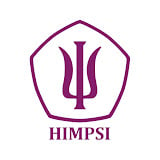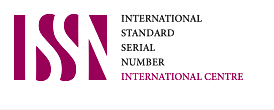WORKPLACE WELLBEING AND WORK ENGAGEMENT AMONG GENERATION Z EMPLOYEES IN PT X: THE ROLE OF PSYCHOLOGICAL CAPITAL AS A MODERATOR
Abstract
This research aims to examine the role of psychological capital as a moderator in the relationship between workplace well-being and work engagement. Researchers used three measuring tools, namely: the Workplace Well-being Questionnaire (WWQ), the Utrecht Work Engagement Scale (UWES-9), and the Psychological Capital Questionnaire. The subjects in this research were employees from one of the manufacturing companies, namely PT X, and they totaled 144 participants. The method employed was non-experimental quantitative, utilizing convenience sampling (a non-probability sampling techniques) for data collection and employing Moderated Regression Analysis (MRA) for analysis. The results obtained by the researchers indicated that psychological capital plays a role in strengthening the relationship between well-being at work and work engagement. It is hoped that this research can help companies to facilitate, direct and improve work engagement.
Keywords
Full Text:
PDFReferences
Abun, D., Magallanes, T., Foronda, G. S. L., & Encarnacion, M. J. (2020). Employees’ workplace well-being and work engagement of Divine Word Colleges’ employees in Ilocos region, Philippines. International Journal of Research in Business and Social Science, 9(2), 70–84. https://doi.org/10.20525/ijrbs.v9i2.623
Al Kahtani, N. S., & M. M., S. (2022). A study on how psychological capital, social capital, workplace wellbeing, and employee engagement relate to task performance. SAGE Open, 12(2). https://doi.org/10.1177/21582440221095010
Alkahtani, N. S., M M, S., Delany, K., & Adow, A. H. E. (2020). The influence of psychological capital on workplace well-being and employee engagement among Saudi workforces. Humanities & Social Sciences Reviews, 8(5), 188–200. https://doi.org/10.18510/hssr.2020.8522
Aprilinda, L., & Sahrah, A. (2022). Pelatihan job crafting sebagai solusi meningkatkan keterikatan kerja karyawan perusahaan finansial teknologi. Psikostudia: Jurnal Psikologi. 11(3), 500-508. http://dx.doi.org/10.30872/psikostudia.v11i3.8345
Ayu, H. R., & Mujiasih, E. (2022). Kesejahteraan psikologis ditinjau dari problem-focused coping pada karyawan pt pantjatunggal knitting mill semarang. Jurnal Empati, 11(4), 245–250.
Bakker, A. B., Hakanen, J. J., Demerouti, E., & Xanthopoulou, D. (2007). Job resources boost work engagement, particnularly when job demands are high. Journal of Educational Psychology, 99(2), 274–284. https://doi.org/10.1037/0022- 0663.99.2.274
Baron, R. M., & Kenny, D. A. (1986). The moderator–mediator variable distinction in social psychological research: Conceptual, strategic, and statistical considerations. Journal of Personality and Social Psychology, 51(6), 1173–1182. https://doi.org/10.1037/0022-3514.51.6.1173
Biswal, K., Srivastava, K. B. L., & Alli, S. F. (2023). Psychological capital and work engagement: Moderating role of social relationships. Sage Journals, 1(9), 2-9. https://doi.org/10.1177/09727531231198964
Codrington, G. T. and Grant-Marshall, S. (2004) Mind the gap, hal 367-368, Penguin Books, Rosebank.
Fachrial, L. A., & Nuranisa, R. (2022). Hubungan grit dan keterikatan kerja pada karyawan generasi milenial. Syntax Literate: Jurnal Ilmiah Indonesia, 7(10), 15621–15631.
George, O. J., Okon, S. E., & Akaighe, G. O. (2021). Psychological capital and work engagement among employees in the Nigerian public sector: The mediating role of emotional intelligence. International Journal of Public Administration, 46(6), 1–9. https://doi.org/10.1080/01900692.2021.2001010
Grimm, P. (Eds.). (2010). Wiley International Encyclopedia of marketing. John Wiley & Sons.
Hastini, L. Y., Fahmi, R., & Lukito, H. (2020). Apakah pembelajaran menggunakan teknologi dapat meningkatkan literasi manusia pada generasi Z di indonesia? Jurnal Manajemen Informatika (JAMIKA), 10(1), 12–28. https://doi.org/10.34010/jamika.v10i1
Imelda. (2019). Generasi milenial dalam industri 4.0: Berkah bagi sumber daya manusia Indonesia atau ancaman? Deloitte Indonesia Perspectives.
Joo, B. K., Lim, D. H., & Kim, S. (2016). Enhancing work engagement: The roles of psychological capital, authentic leadership, and work empowerment. Leadership and Organization Development Journal, 37(8), 1117–1134. https://doi.org/10.1108/LODJ-01-2015-0005
Linkedin Global Talent Trends 2022. (2022). The Reinvention of Company Culture. Linkedin Talent Solutions. https://business.linkedin.com/content/dam/me/business/en-us/talent-solutionslodestone/body/pdf/global_talent_trends_2022.pdf"
Lockwood, N. R. (2007). Leveraging employee engagement for competitive advantage. SHRM Research, 2–10.
Luthans, F., & Morgan, C. M. Y. (2017). Psychological capital: An evidence-based positive approach. Annual Review of Organizational Psychology and Organizational Behavior, 1–43. https://doi.org/10.1146/annurev-orgpsych-032516-113324
Luthans, F., Youssef, C. M., & Avolio, B. J. (2007). Psychological capital: Developing the human competitive edge.
Merdeka. (2020, September 30). Industri manufaktur jadi pengungkit ekonomi di tengah pandemi. https://www.merdeka.com/uang/industri-manufaktur-jadi-pengungkit-ekonomi-di- tengah-pandemi.html
Okazaki, E., Nishi, D., Susukida, R., Inoue, A., Shimazu, A., & Tsutsumi, A. (2019). Association between working hours, work engagement, and work productivity in employees: A cross-sectional study of the Japanese study of Health, occupation, and psychosocial factors related equity. Journal of Occupational Health, 61(2), 182–188. https://doi.org/10.1002/1348-9585.12023
Parhusip, A. A. (2021). Analisis kepuasan dan loyalitas pelanggan pengaruhnya terhadap keputusan menggunakan jasa layanan online (grab) di wilayah kota Medan. Accumulated Journal (Accounting and Management Research Edition), 3(2), 107-118. http://dx.doi.org/10.22303/accumulated.3.2.2021.107-118
Parker, G. B., & Hyett, M. P. (2011). Measurement of well-being in the workplace: The development of the work well-being questionnaire. Journal of Nervous & Mental Disease, 199(6), 394–397. https://doi.org/10.1097/NMD.0b013e31821cd3b9
Prakash, P., & Kashyap, B. (2021). Relationship between employees’ workplace well-being and work engagement. Ilkogretim Online Elementary Education Online, 20(2), 2300–2306. https://doi.org/10.17051/ilkonline.2021.02.244
Prasetyo, B., & Trisyanti, U. (2018). Revolusi industri 4.0 dan tantangan perubahan sosial. Prosiding SEMATEKSOS 3 Strategi Pembangunan Nasional Menghadapi RevolusiIndustri 4.0.
Pri, R., & Zamralita. (2017). Gambaran works engagement pada karyawan di PT EG (manufacturing industry). Jurnal Muara Ilmu Sosial, Humaniora, Dan Seni, 1(2), 295–303.
Rachmatan, R., & Kubatini, S. (2018). Hubungan Antara Keterikatan Kerja dengan Intensi Keluar Kerja pada Karyawan Swalayan di Banda Aceh Relationship betweeen Work Engagement and Turnover Intention among Supermarket Employee in Banda Aceh. In Jurnal Psikogenesis (Vol. 6, Issue 1).
Ramadhani, A., & Nindyati, A.D. (2022). Gambaran makna kerja bagi generasi z di Jakarta, 13 (1). https://doi.org/10.51353/inquiry.v13i01.596
Saleem, M.S., Isha, A.S. N., Yusop, Y. M., Awan, M.I., & Naji, M.A. (2022). The role of psychological capital and work engagement in enhancing construction workers’ safety behavior. Frontiers in Public Health, 1-19.
Schaufeli, W. B., & Bakker, A. B. (2004). Job demands, job resources, and their relationship with burnout and engagement: A multi-sample study. Journal of Organizational Behavior, 25(3), 293–315. https://doi.org/10.1002/job.248
Schaufeli, W. B., Salanova, M., Roma, V. G., & Bakker, A. B. (2002). The measurement of engagement and burnout: A two sample confirmatory factor analytic approach. Journal Of Happiness Studies, 71–92.
Sharp, N. (2020, August 6). Is the manufacturing industry ready for Generation Z?
Wang, X., Liu, L., Zou, F., Hao, J., & Wu, H. (2017). Associations of occupational stressors perceived organizational support, and psychological capital with work engagement among Chinese female nurses. BioMed Research International, 1–11. https://doi.org/10.1155/2017/5284628
Warr, P., & Nielsen, K. (2018). Handbook of well-being. https://www.researchgate.net/publication/323268036.
DOI: http://dx.doi.org/10.22441/biopsikososial.v8i1.23750
Refbacks
- There are currently no refbacks.
Copyright (c) 2024 Biopsikososial: Jurnal Ilmiah Psikologi Fakultas Psikologi Universitas Mercubuana Jakarta
JBUMBand its articles is licensed under a Creative Commons Attribution-ShareAlike 4.0 International License.
Tim Editorial Office
JBUMB
Fakultas Psikologi, Universitas Mercu Buana
Jalan Meruya Selatan No. 1, Kembangan, Jakarta Barat, 11650, Indonesia
Phone: +6281318855243
Email: [email protected]
Website: https://publikasi.mercubuana.ac.id/index.php/biopsikososial/index

















